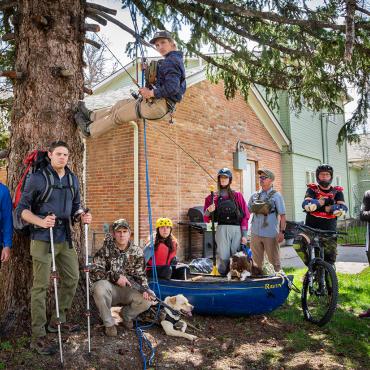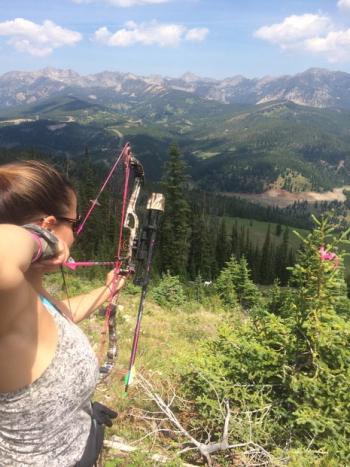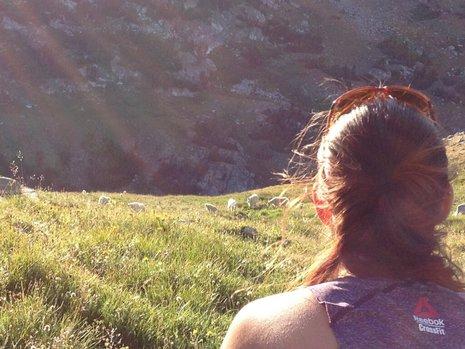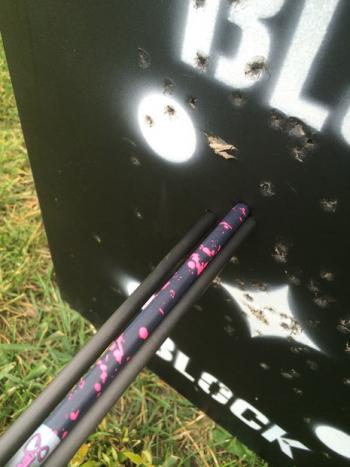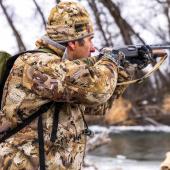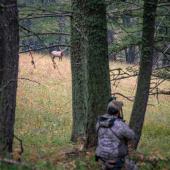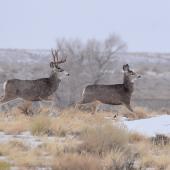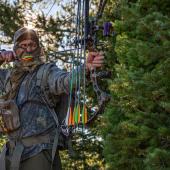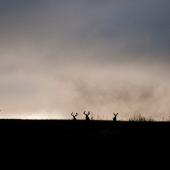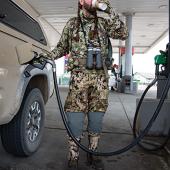Can a Veggy Kill?
From target practice to the hunt.
There’s been plenty written about hunting season preparation. Can you hike two miles uphill carrying your pack without going into cardiac arrest? Has your rifle even been cleaned since 2005? Have you shot your bow since last season? These are all valid questions, but in our neck of the woods, one aspect of preseason prep gets overlooked: emotional preparation. Most of you probably stopped reading right there, and I get it. Emotional quandaries have no place during hunting season, right? As a vegetarian who got her first bow less than two years ago and aims to take her first deer/elk this season, I’m probably in a class by myself.
But from the first time I picked up a bow, I felt more Montanan. My hobbies were no longer restricted to jogging around in a color-coordinated outfit, sport climbing when the weather was nice, and biking to work when I felt like it. I could get down and dirty too. After spending last fall watching hunters leave for the weekend and return with an elk in the truck bed, I decided to practice all year and get out there with them.
I've played the hunt out in my mind a million times. I hike to the ridgeline at dawn, call in a six-point bull to exactly 20 yards, and take aim at the broadside expanse of lungs and heart. I seek bow hunting's mystical, almost unattainable aura that puts hunters in a class by themselves. They pursued that 700-pound elk up and over mountains, through trees, and miles off trail. They crept close enough, took a good shot, blood-trailed, dressed the animal, and fed themselves for an entire winter.
In reality though, I haven’t even been out yet. I’ve been practicing with broadheads, I can shoot accurately at a variety of ranges and angles, and I’m in good shape. Archery season opened on September 6, but due to a FWP system glitch, I can’t get into a field day—the last step before receiving my hunter-safety certification—until mid-month. It’ll be a few weeks before I have my license, but that’s okay—it gives me more time to wrap my head around the hunt.
I described my fascination with hunting to a friend back East, and giddily told her I was getting my tags soon. She paused when I finished and asked, “What will you feel like afterwards? You’ll never be able to go back and be the person who didn’t kill an animal.” My New Hampshire life stands in stark contrast to my Montana life, but her question wasn’t meant to discourage me. It was just a query about potential psychological repercussions for someone who doesn't even eat meat, let alone kill it.
Her concern stuck with me, boiling down to the simple question: Can I take a life? I’d like to believe I’m not the only person who struggles with this, but I don’t know if the sport of bow hunting typically attracts people like me.
From an economic and ecological standpoint, the benefits of hunting are vast and easily researched. Hunters provide first-hand information to wildlife managers, which helps guide scientific research and determines season dates and special permits. Revenue from hunting taxes and licenses goes toward Montana FWP conservation efforts and operating costs. This revenue is a critical source of income for the state, and has actually fallen short for the past several years. (Look for a more in-depth article on conservation funding in O/B's fall issue.) Hunting also helps maintain healthy wildlife populations by reducing numbers and lowering human-wildlife conflicts.
Organizations like the Rocky Mountain Elk Foundation, Ducks Unlimited, and the Mule Deer Foundation work to raise awareness, conserve animal habitats, and manage healthy populations while promoting ethical hunting. Contrary to what I once believed, organizations that fundraise and promote appreciation for a specific species are not opposed to hunting them. In fact, it’s an important part of the management plan.
Every proud Montana native who stomps around my house in Pac Boots and smelly camo respects public lands, hunter/landowner relationships, and all hunting dates and regulations. They understand the important conservation aspects of hunting, and quote statistics to me as I aim at a target and try to pretend it’s alive.
I want to get to that primitive state out under the trees and see my animal in front of me. I want to be able to make the shot and have it under my belt. I also understand that situations vary endlessly, and sometimes even the most dedicated hunters don’t get a good shot all season. If mine comes, we’ll see if I can pull the trigger.
PS: Regarding the vegetarian thing: if I get an animal this year, yes, I will eat it.

